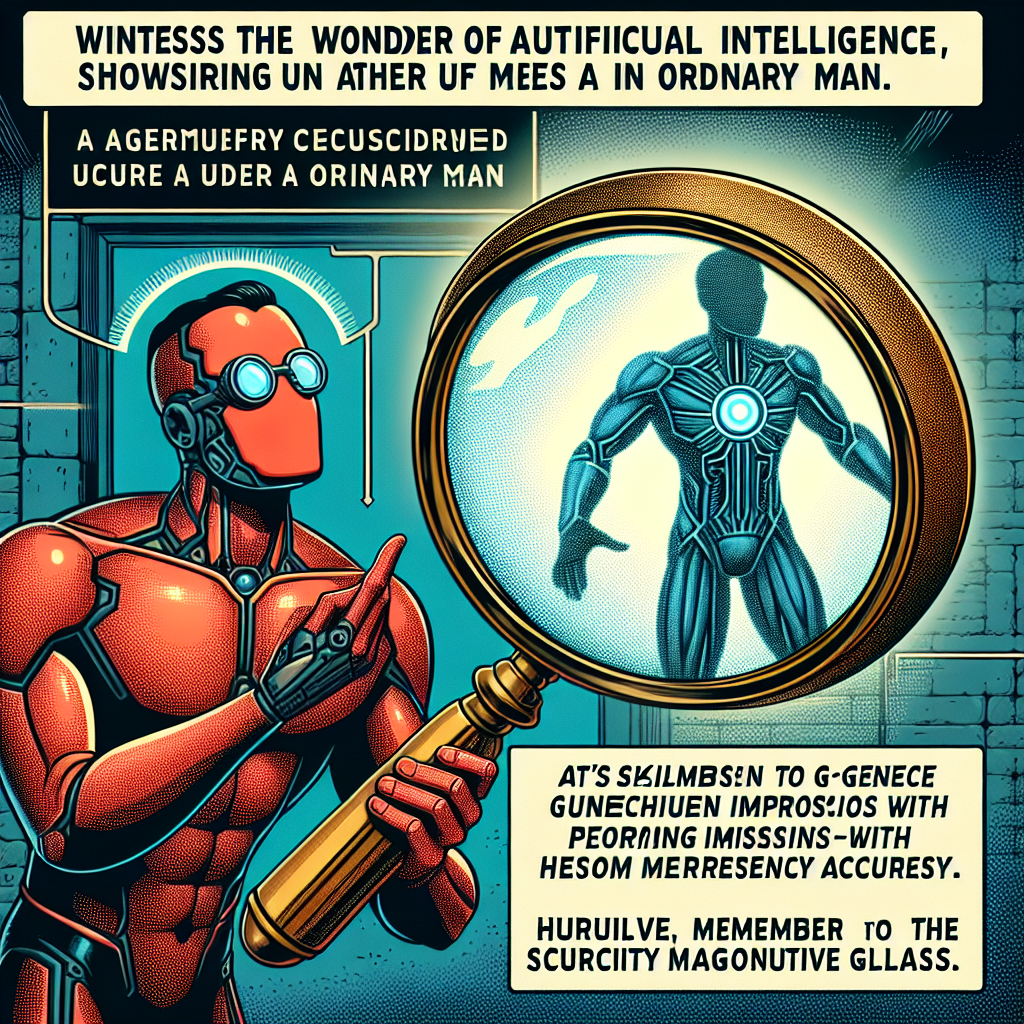“Diving into the Deep End: Unraveling the Hilarious Impact of Deep Fakes in the AI Epoch”

“Deep fakes, deep impacts: critical thinking in the AI era”
“More and more, we are seeing the explosion of AI-based technologies such as Deepfake, capable of creating ultra-realistic images and videos of people doing or saying things they never did,” quips this brilliant nugget of an article. And while the technology smacks of impressive innovation, it also offers up a frantic query – will the spawn of artificial intelligence triumph over social harmony and individual freedom?
In the zany, unpredictable world of artificial intelligence, “Deepfakes” have had quite the entrance. Think of them as the new kid in school – the one who can nail a perfect impression of any celebrity or impersonate any teacher or replicate any environment with uncanny precision. And while their performance is undeniably amusing, it can leave one more than just a tad unsettled.
One might even consider them the Clark Kent of artificial intelligence; seemingly innocuous on the surface, but under the right circumstances, possessing the power to topple skyscrapers of truth. Spreading misinformation, perpetuating propaganda, tarnishing reputations – the potential for nefarious use seems more frightening than any comic book villain.
Yet, in this grand comedy of errors that is digital technology, Deepfakes are merely the clowns. It’s Buzz Lightyear’s “infinity and beyond!” with the number of AI-based technologies popping up. Underneath the hilarity, however, lies the sobering realization of the serious implications of these technologies. Things start to look a tad more dystopian than Pixar.
Now, the take is not all doom and gloom. Think of it as a wake-up call. As technology advances at the speed of AI on steroids, it becomes more paramount to hone our skills in critical thinking. After all, fake news, synthetic images, and Deepfakes won’t carry a neon sign announcing their deception. The responsibility to discern falls squarely on the broad shoulders of the public.
So, before one falls prey to the beguiling charm of a Deepfake, remember to dust off the magnifying glass of skepticism. Dive a little deeper than what meets the eye. Sure, Deepfakes can put kittens in suits and presidents in the middle of a high school musical. But when amusement provides the perfect cover for alter-reality, a good chuckle must be tempered with discerning caution.
At the same time, as we nurture our individual critical thinking skills, it’s vital for governments and corporations to take the reins and develop stringent regulations for AI-based technologies. It’s like that one episode of Black Mirror, where the techno-futuristic amusement park seems fun until – surprise, surprise – it’s not. These man-made Frankenstein monsters need their creators to establish limits before they start tearing down the metaphoric village.
In the end, it’s a cry for balance. The triumph of innovation need not result in folly. As much as Deepfakes herald the rush of technological progress, their darker ramifications necessitate a call for prudence and regulation. There’s no harm in a good laugh, but it’s a guffaw gone wrong when the joke’s on us.
